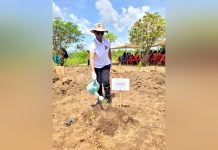Africa-Press – Malawi. At a time various quarters are advocating for speedy delivery of justice, Times has established that delayed court judgements are among the major factors that leave many offenders languishing behind bars for longer than they should.
Such is the case of 47-year-old Wyson Bigi, who has been waiting for sentencing for 15 years after being implicated in a murder case. In November last year, Times visited Chichiri prison and had a chat with Bigi and other two remandees Maliko Namacha and Allan Tebulo. The three, who spoke on different occasions, narrated how they have waited for their sentencing for over 10 years.
11 years after prepared judgment
Bigi, who was a businessman, said he was implicated in a murder case by a friend. He told Times that he last appeared before the late Judge Joseph Mwanyungwa in 2010.
“I remember very well that I was arrested on May 12, 2007. What happened was that a friend and I went to Manase township where I was plying my trade. He asked me to find a buyer for his cell phone. I took him to one possible buyer,” said Bigi.
But a month later, Bigi was called by police who questioned him about the phone. The police told him that the phone was stolen and the owner was killed.
“I was detained as the police were looking for my friend and when they arrested him, he pleaded guilty and implicated me. However, when court proceedings started my friend told the court the truth.
“On March 10, 2010 we appeared before the court and my friend was sentenced to life imprisonment and I was told to wait for 28 days for my sentencing. Since that time, I have not heard anything from the court. I have been on remand since 2007,” he said.
In 2011, Bigi was told his judgement was prepared but because his lawyer from Legal Aid Bureau was not present, he would have to wait. And he is still waiting.
A sentence that never comes
Namacha, who comes from Thyolo District, was convicted for manslaughter and has been waiting for his sentencing since 2017. “On December 20, 2009 I had a fight with my friend at a drinking joint. I do not even recall what exactly happened or how it happened but my friend had a knife and as I tried to protect myself from being stabbed, my friend got stabbed instead and he was pronounced dead at the hospital,” he said.
Namacha, who pleaded guilty before retired Judge Maclean Kamwambe in 2017, is still waiting for judgement. And Tebulo, who comes from Zomba, was arrested at the age of 19 on August 30, 2007 on murder charges.
Last court appearance: 8 years ago
He last appeared before Judge Healey Potani in court on November 4, 2013 where he was found with a case to answer. He narrates his story: “In 2007 my uncle told me to meet him in Zomba where he gave me a bag to deliver to a certain lady in Blantyre. He locked the bag and told me that the key was with the recipient of the bag.
“When I got to Ndirande it turned out that I was going to a witch doctor’s place. No sooner had I delivered the bag, than the police arrived at the scene. To my dismay, when the bag was opened, we found male private parts and I was immediately arrested,” he said.
‘It is torture’
Principal Legal Aid Advocate Sigele Chirwa confirmed of the cases of the people we had a chat with. “Maliko Namacha, who has been waiting for judgment since 2017, was arrested in 2010 and has been remanded ever since. The matter was before retired serving remandee’s has found justice.
“We are hoping that there will be more of these interventions that the people who are lost in the system should be helped. We should applaud the judiciary for this activism. We know there could be several people in the system that have failed to get justice and others have even died in prisons,” he said.
In November last year, Chreaa said there were 3, 600 suspects on remand and 14,000 prisoners against the capacity of 5, 500 inmates for all cells in the country. And the Legal Aid Bureau said it had a backlog of 23,000 plus cases to handle but it only had 25 lawyers and 36 paralegals in its books.
Police role
Director of Public Prosecutions Steve Kayuni said in November last year that his office was doing all it could to try suspects in good time but was limited due to several factors. One of the factors was that it depends on the police to do thorough investigations before taking matters to court.
National police spokesperson James Kadadzera also said the police only keep suspects for 48 hours and beyond that the police apply to court for the suspects to go on remand to allow them finish investigations.
Judiciary woes
According to the Malawi Judiciary strategic plan for 2019 to 2024, the Judiciary admits that the system is prohibitive to many people to access justice for several reasons that include long distances to courts and shortage of staff and low funding.
Judiciary has vacancies in both judicial and non-judicial positions averaging 30 percent. For instance, the vacancy rate for High Court Judges is at 44 percent (26 of required 46). This challenge is compromising the performance of the Judiciary.
The plan also says rural areas are denied institutions that deliver justice as such institutions tend to be located in urban and peri-urban centres of the country when over 80 percent of Malawians live in rural areas.
In December last year, the Malawi Law Society (MLS) started a campaign to push for speedy processing of court judgements. After engaging the Chief Justice then, Andrew Nyirenda, where they formed a task force to review some of the challenges in the judiciary – including delayed judgements.
For More News And Analysis About Malawi Follow Africa-Press






